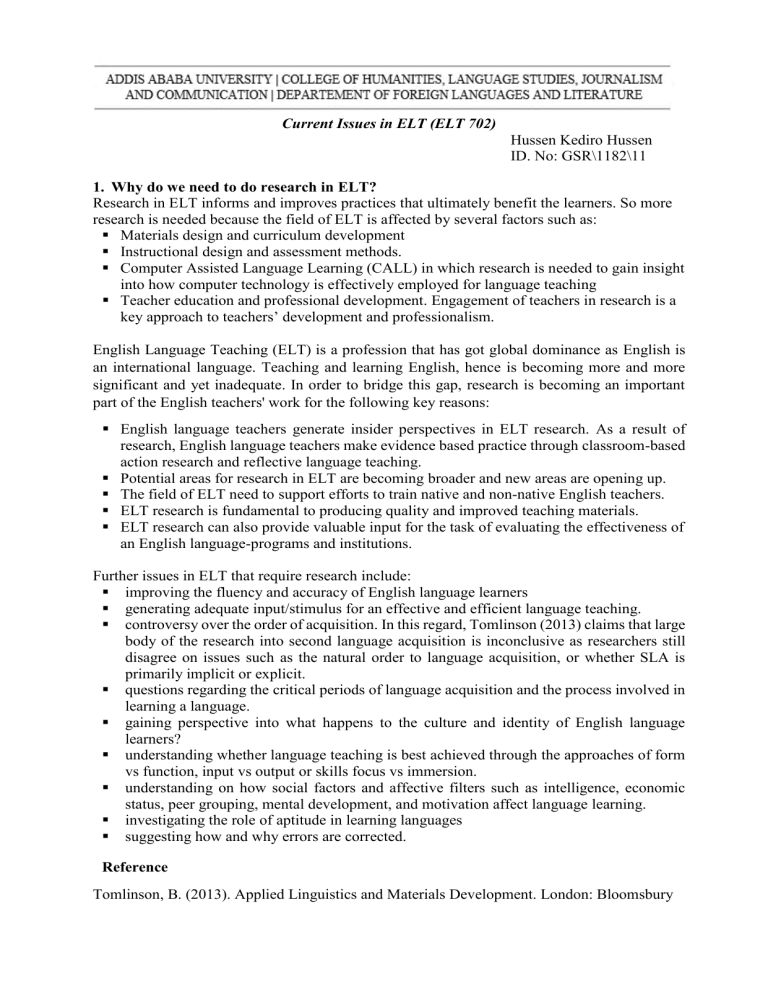
Current Issues in ELT (ELT 702) Hussen Kediro Hussen ID. No: GSR\1182\11 1. Why do we need to do research in ELT? Research in ELT informs and improves practices that ultimately benefit the learners. So more research is needed because the field of ELT is affected by several factors such as: Materials design and curriculum development Instructional design and assessment methods. Computer Assisted Language Learning (CALL) in which research is needed to gain insight into how computer technology is effectively employed for language teaching Teacher education and professional development. Engagement of teachers in research is a key approach to teachers’ development and professionalism. English Language Teaching (ELT) is a profession that has got global dominance as English is an international language. Teaching and learning English, hence is becoming more and more significant and yet inadequate. In order to bridge this gap, research is becoming an important part of the English teachers' work for the following key reasons: English language teachers generate insider perspectives in ELT research. As a result of research, English language teachers make evidence based practice through classroom-based action research and reflective language teaching. Potential areas for research in ELT are becoming broader and new areas are opening up. The field of ELT need to support efforts to train native and non-native English teachers. ELT research is fundamental to producing quality and improved teaching materials. ELT research can also provide valuable input for the task of evaluating the effectiveness of an English language-programs and institutions. Further issues in ELT that require research include: improving the fluency and accuracy of English language learners generating adequate input/stimulus for an effective and efficient language teaching. controversy over the order of acquisition. In this regard, Tomlinson (2013) claims that large body of the research into second language acquisition is inconclusive as researchers still disagree on issues such as the natural order to language acquisition, or whether SLA is primarily implicit or explicit. questions regarding the critical periods of language acquisition and the process involved in learning a language. gaining perspective into what happens to the culture and identity of English language learners? understanding whether language teaching is best achieved through the approaches of form vs function, input vs output or skills focus vs immersion. understanding on how social factors and affective filters such as intelligence, economic status, peer grouping, mental development, and motivation affect language learning. investigating the role of aptitude in learning languages suggesting how and why errors are corrected. Reference Tomlinson, B. (2013). Applied Linguistics and Materials Development. London: Bloomsbury



